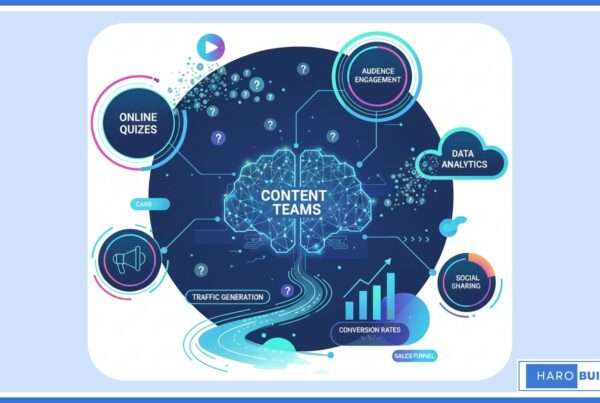
Staying ahead in the digital marketing landscape can be challenging as new trends emerge rapidly. Recent research indicates that marketers must adapt to changes like AI integration and evolving social media strategies to remain competitive. In 2024, staying updated with the latest digital marketing trends is crucial for success.
From harnessing the power of short-form video to leveraging AI for personalized campaigns, businesses must strategically plan their marketing efforts. This article outlines the top 10 digital marketing trends for 2024, offering a comprehensive guide to help you navigate and implement these trends effectively.
Top 10 Digital Marketing Trends for 2024
1. Artificial Intelligence in Marketing:
Artificial intelligence will significantly shape marketing strategies in 2024 by optimizing customer experiences. AI marketing tools, including chatbots and data analysis, will allow for better personalized messages and targeted marketing. Platforms like LinkedIn and search engines will integrate AI, offering a highly tailored experience.
Consequently, marketers can expect enhanced ROI from AI-driven campaigns. Digital marketers should plan to invest in AI marketing strategies to stay competitive. This shift will lead to more efficient marketing campaigns, helping brands maximize digital efforts while navigating the changing digital landscape.
2. The Rise of Short-Form Video:
Short-form video content, particularly on short video platforms like TikTok, will dominate the 2024 marketing landscape. Marketers are increasingly leveraging platforms like TikTok for their rapid engagement capabilities. Besides, video marketing is expected to be a key marketing tool for brands. Short-form content allows marketers to offer highly targeted messages, appealing directly to consumers with limited attention spans.
As consumer habits evolve, marketers need to invest in video marketing and leverage unlimited video editing capabilities to maximize ROI. Similarly, platforms focusing on short, engaging content will continue gaining momentum throughout 2024, offering endless opportunities for creative video enhancements.
3. Personalization Through First-Party Data:
With the growing concern over data privacy, first-party data will play an essential role in personalizing digital marketing strategies. Marketers will shift focus from third-party cookies to gather direct data from consumers, ensuring privacy while improving customer experience. Personalization of email marketing campaigns and marketing content will improve by utilizing this data, allowing marketers to offer more relevant ads and messages.
Therefore, marketers plan to invest in first-party data solutions to enhance digital efforts. This change will significantly influence digital ads and marketing efforts in 2024.
4. The Decline of Third-Party Cookies:
The impending elimination of third-party cookies will drive marketers to find alternative solutions for data collection. Google’s decision to phase out third-party cookies will force a shift toward first-party data and more privacy-conscious marketing strategies.
Consequently, digital marketers will rely on other methods like customer consent and platforms like social media for targeted marketing. As this change unfolds, marketers will need to rethink strategies for personalized ads, emphasizing first-party data collection. Despite challenges, marketers plan to invest in solutions that align with privacy standards in 2024. For businesses using AI phone calls as part of their customer outreach, tools like carrier lookup can help identify the carrier associated with a phone number, improving communication and enhancing fraud prevention, all while maintaining privacy standards.
5. Influencer Marketing Evolution:
Influencer marketing will see a significant transformation in 2024, with brands focusing on more authentic collaborations. Marketers will prioritize partnerships with micro and nano influencers, who offer highly engaged audiences. Platforms like TikTok and Instagram will continue being popular for influencer campaigns.
Additionally, content marketing strategies will shift towards long-term relationships rather than one-off campaigns. As influencer marketing becomes a staple for digital marketing teams, brands will focus on genuine connections to maximize ROI and customer engagement. Consequently, influencer collaborations will remain a critical marketing channel in 2024.
6. The Growing Importance of ROI in Digital Campaigns:
ROI will be increasingly critical in digital campaigns during 2024. Marketers are focusing on improving returns by using data-driven decisions, optimizing marketing strategies, and ensuring each campaign delivers measurable results. First-party data will help marketers better target their audience, increasing efficiency and reducing costs.
Also, AI is playing a vital role in enhancing the effectiveness of marketing campaigns, allowing for smarter spending decisions. With the growing importance of personalized marketing, brands are continually seeking ways to enhance customer experience while simultaneously maximizing returns on their investments. Consequently, ROI will remain a top priority in digital marketing. Even now many brands keep track of their ROI and write down the results of their campaigns digitally. Word is a popular tool for keeping track of these insights however, to ensure accessibility across your company you can always batch convert PDFs to allow easy access and sharing.
7. Email Marketing and AI Integration:
In 2024, email marketing will be revolutionized by AI integration, empowering marketers to craft highly personalized campaigns tailored to consumer behavior. By using an email verifier alongside AI, marketers can ensure each message reaches a verified and engaged audience, maximizing impact. AI will also automate critical tasks like segmentation and timing, driving higher engagement rates and delivering stronger results.
Moreover, AI-powered analytics will provide deeper insights into campaign performance, enabling quicker adjustments for greater efficiency. As a result, AI is not only improving how email lists are managed but also driving innovation in email marketing strategies across industries.
8. SEO Adaptations for Voice Search:
With the rise of voice search, SEO in 2024 must adapt to meet changing user behaviors. Search engines, particularly Google, are prioritizing content optimized for natural language queries that voice assistants typically handle. Marketers will need to focus on long-tail keywords and conversational phrases to remain relevant in search rankings.
Moreover, mobile-first indexing will continue to play a crucial role as most voice searches come from mobile devices. Marketers must ensure websites are both mobile- and voice-friendly, thereby enhancing the customer experience. Optimizing for voice search is quickly becoming essential to remain competitive in the digital landscape.
9. Social Media as a Key Marketing Channel:
In 2024, social media will continue to be a dominant marketing channel for brands seeking direct interaction with consumers. Platforms like TikTok and LinkedIn are gaining traction, with short-form videos playing a critical role in driving engagement. Marketers will rely on social media to create interactive content that fosters community building and authentic connections with audiences.
Additionally, social commerce is set to expand, allowing users to shop directly from these platforms. Hence, brands must maintain an active presence across key platforms to stay ahead in the rapidly evolving social media landscape, ensuring strong engagement and reach. However, it’s easy to lose track of time when managing social media, so consider using automated time tracking to track the time spent on these tasks, helping you optimize your efforts and identify areas for improvement.
10. Inbound Marketing Focus:
Inbound marketing will take precedence in 2024, as consumers demand more value-driven and informative content. Marketers are investing heavily in content marketing strategies that attract potential customers without being overly promotional. SEO and social media will be pivotal in bringing the right audience to well-curated content.
Moreover, personalized marketing messages will build stronger relationships, as brands focus on delivering relevant, useful information to their audience. Consequently, inbound marketing will remain an effective method for generating long-term leads and conversions, emphasizing the importance of building trust through valuable and consistent interactions.
Conclusion
The top digital marketing trends for 2024 are set to redefine how businesses engage with their audiences. By focusing on AI, personalization, and new social media strategies, marketers can enhance their efforts and achieve greater success. How will your marketing strategy adapt to these emerging trends this year?
FAQs
1. What changes are expected in SEO for 2024?
SEO will focus on optimizing content for voice search and mobile-first indexing.
2. How should marketers adapt to the decline of third-party cookies?
Marketers will need to rely on first-party data and alternative tracking methods for accurate targeting.
3. What impact will conversational marketing have in 2024?
Conversational marketing will enhance real-time interactions and improve customer satisfaction through chatbots.
4. How can email marketing benefit from AI this year?
AI will enable more personalized and automated email campaigns, increasing open rates and engagement.
5. What new strategies should businesses implement in their marketing plans for 2024?
Businesses should focus on integrating new technologies, like AI, and exploring emerging social media trends.



